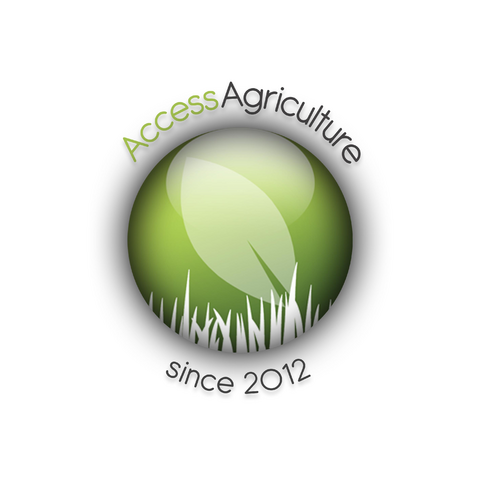
16.1K
Downloads
474
Episodes
Access Agriculture is a non-profit organisation that showcases agricultural training videos in local languages. We strive to promote the transition towards agroecology and organic farming across the global South. To impact on rural livelihoods, please explore Access Agriculture.
Access Agriculture is a non-profit organisation that showcases agricultural training videos in local languages. We strive to promote the transition towards agroecology and organic farming across the global South. To impact on rural livelihoods, please explore Access Agriculture.
Episodes

Thursday Aug 26, 2021
Staggering production of tomatoes (Summary)
Thursday Aug 26, 2021
Thursday Aug 26, 2021
If you are growing tomatoes you need to make sure that you don’t just grow when everyone else is, or you will probably suffer from very low prices. Working in a group and staggering your production can provide a constant market supply of fresh tomatoes.
Download the full audio podcast in different languages at: www.accessagriculture.org
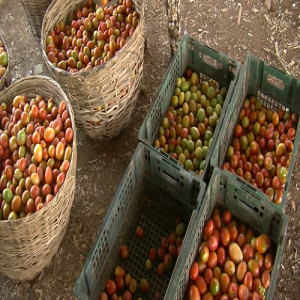
Wednesday Aug 25, 2021
Good handling of tomatoes (Summary)
Wednesday Aug 25, 2021
Wednesday Aug 25, 2021
As soon as you pick your tomatoes their quality can only ever decrease. The best you can do is to slow down the reduction of quality, by following some practices which reduce damage and harm. The key to getting good quality tomatoes to sell starts with the pickers. If they can avoid damaging the crop, we have a chance.
Download the full audio podcast in different languages at: www.accessagriculture.org
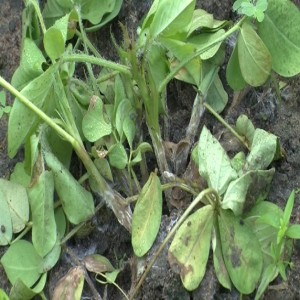
Tuesday Aug 24, 2021
Root and stem rot in groundnut (Summary)
Tuesday Aug 24, 2021
Tuesday Aug 24, 2021
Crop rotation, and the use of gypsum, herbal mixtures or beneficial fungi like Trichoderma can control root and stem rot diseases.
Download the full audio podcast in different languages at: www.accessagriculture.org
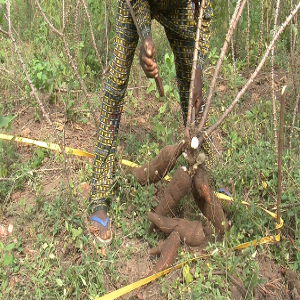
Monday Aug 23, 2021
How to calculate yield of cassava (Summary)
Monday Aug 23, 2021
Monday Aug 23, 2021
Cassava is a plant with valuable roots which are hidden below the soil. One of the main issues for cassava farmers is how do you estimate the value of your crop… but it is possible to work out the size of your cassava yield before harvest.
Download the full audio podcast in different languages at: www.accessagriculture.org
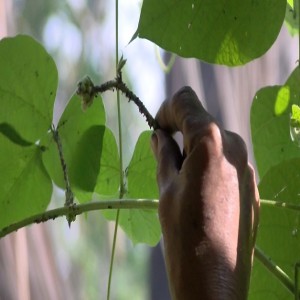
Friday Aug 20, 2021
Managing aphids in beans and vegetables (Summary)
Friday Aug 20, 2021
Friday Aug 20, 2021
You can easily control aphids by using some organic practices, such as sprinkling ash, spraying a neem solution or planting trap crops.
Download the full audio podcast in different languages at: www.accessagriculture.org
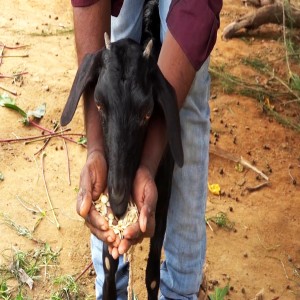
Thursday Aug 19, 2021
Deworming goats and sheep with herbal medicines (Summary)
Thursday Aug 19, 2021
Thursday Aug 19, 2021
In this audio podcast, we will learn from farmers in Southern India how internal worms spread to goats and sheep. We will also see how to prevent and cure the animals with a few simple methods.
Download the full audio podcast in different languages at: www.accessagriculture.org
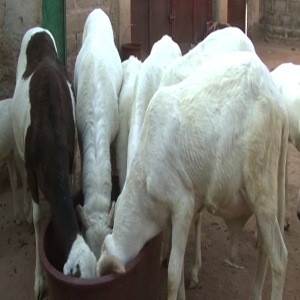
Wednesday Aug 18, 2021
Keeping sheep healthy (Summary)
Wednesday Aug 18, 2021
Wednesday Aug 18, 2021
A sick sheep does not grow fast and will sell at a low price because it is thin and the meat will be of poor quality. Some diseases such as PPR and pasteurellosis are mainly transmitted through inhalation and contaminated drinking water. Parasitic worms spread to healthy animals through unhygienic conditions in the shed or by grazing on contaminated pasture.
Download the full audio podcast in different languages at: www.accessagriculture.org
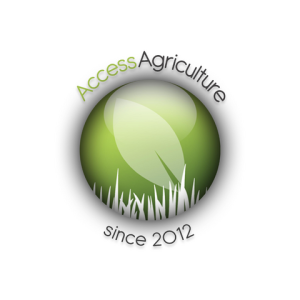
Tuesday Aug 17, 2021
Managing the mango seed weevil (Summary)
Tuesday Aug 17, 2021
Tuesday Aug 17, 2021
The best way to check if you have mango seed weevils is by using sticky bands. Put a sticky band around each tree trunk, at the upper end of the trunk before it branches. The best way to control mango seed weevils is to burn an aromatic mixture to smoke out the pest. Also regularly remove and destroy dropped fruits in your orchard.
Download the full audio podcast in different languages at: www.accessagriculture.org
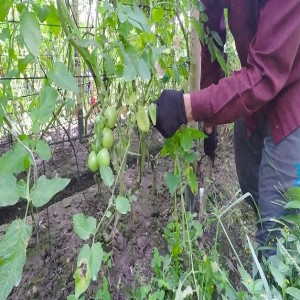
Monday Aug 16, 2021
Managing tomato late blight (Summary)
Monday Aug 16, 2021
Monday Aug 16, 2021
Late blight is caused by moulds that survive in the soil and in residues of crops that had the disease. As the disease spreads very fast, inspect your field every day. If you see sick plants, cut of the sick parts of the plant and burn the affected parts. Never put sick plant parts on your compost as the mould will continue to grow and spread to your field.
Download the full audio podcast in different languages at: www.accessagriculture.org
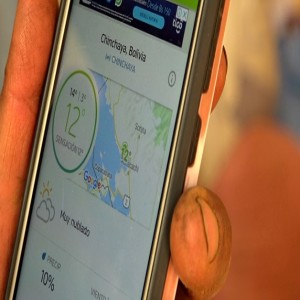
Friday Aug 13, 2021
Forecasting the weather with an app (Summary)
Friday Aug 13, 2021
Friday Aug 13, 2021
Weather Underground is the name of a weather app which is easy and free to download on your cell phone. The app makes weather forecasts every day for a week. The data is updated constantly if you have an Internet connection.
Download the full audio podcast in different languages at: www.accessagriculture.org
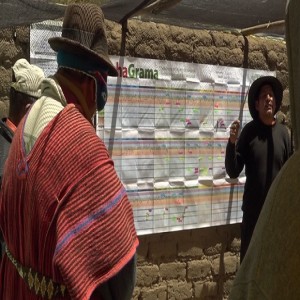
Thursday Aug 12, 2021
Recording the weather (Summary)
Thursday Aug 12, 2021
Thursday Aug 12, 2021
In a notebook, you can write down the predictions of the weather based on natural indicators, the actual daily weather, the farm activities and crop performance. This allows you to learn from year to year, share experiences with others and better plan for the future.
Download the full audio podcast in different languages at: www.accessagriculture.org
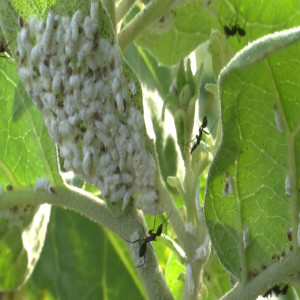
Wednesday Aug 11, 2021
Managing mealybugs in vegetables (Summary)
Wednesday Aug 11, 2021
Wednesday Aug 11, 2021
Unlike most botanical insecticides, the plants can take up neem extracts through their roots and leaves, spreading the material throughout the plant tissues. For this reason, neem can help control pests like leaf miners, which feed inside leaves and are normally not affected by sprays that only cover the outside of the plant.
Download the full audio podcast in different languages at: www.accessagriculture.org

Tuesday Aug 10, 2021
Neem seed kernel extract (Summary)
Tuesday Aug 10, 2021
Tuesday Aug 10, 2021
Unlike most botanical insecticides, the plants can take up neem extracts through their roots and leaves, spreading the material throughout the plant tissues. For this reason, neem can help control pests like leaf miners, which feed inside leaves and are normally not affected by sprays that only cover the outside of the plant.
Download the full audio podcast in different languages at: www.accessagriculture.org
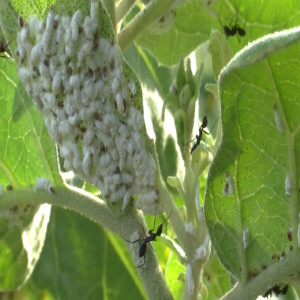
Monday Aug 09, 2021
Living windbreaks to protect the soil (Summary)
Monday Aug 09, 2021
Monday Aug 09, 2021
Live barriers are made up of lines of native grass, bushes and trees. The native plants are adapted to living with little water and they withstand the strong winds.
Download the full audio podcast in different languages at: www.accessagriculture.org
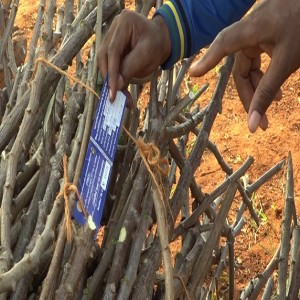
Friday Aug 06, 2021
Quality cassava planting material (Summary)
Friday Aug 06, 2021
Friday Aug 06, 2021
To produce quality cassava planting material, we need to: select a suitable site and prepare the land early, ensure good soil fertility, decide what varieties to grow, and properly handle the planting material.
Download the full audio podcast in different languages at: www.accessagriculture.org
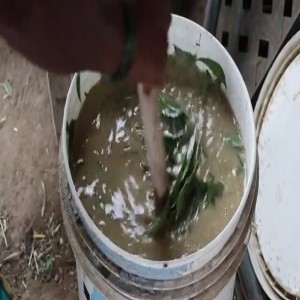
Thursday Aug 05, 2021
Good microbes for plants and soil (Summary)
Thursday Aug 05, 2021
Thursday Aug 05, 2021
In this audio podcast, we will learn about a solution that boosts the crop’s growth, and at the same time protects the crop from pests and diseases.
Download the full audio podcast in different languages at: www.accessagriculture.org
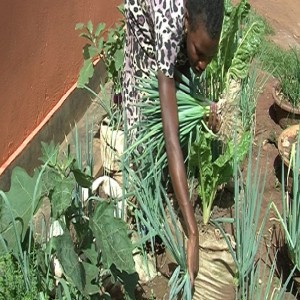
Wednesday Aug 04, 2021
Using sack mounds to grow vegetables (Summary)
Wednesday Aug 04, 2021
Wednesday Aug 04, 2021
The best compost for sack mounds is the one made using poultry manure and plant remains. If you use such compost, the sack mound will yield a lot of vegetables for a long time.
Download the full audio podcast in different languages at: www.accessagriculture.org
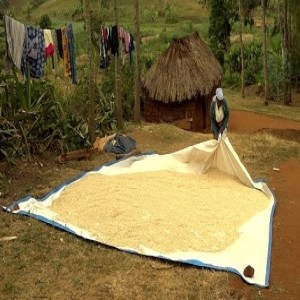
Tuesday Aug 03, 2021
Managing aflatoxins in maize during drying and storage (Summary)
Tuesday Aug 03, 2021
Tuesday Aug 03, 2021
As our health and the health of our animals are at stake, let us learn from experienced farmers in Tanzania how to properly dry and store our maize.
Download the full audio podcast in different languages at: www.accessagriculture.org
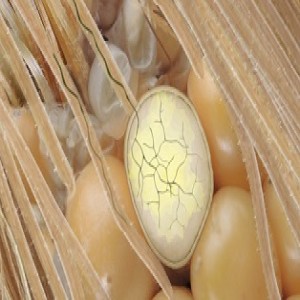
Monday Aug 02, 2021
Managing aflatoxins in maize before and during harvest (Summary)
Monday Aug 02, 2021
Monday Aug 02, 2021
By keeping your soil healthy and by planting early, your plants will be strong and less vulnerable to insects and moulds. Once the maize is dry, harvest within the next two weeks. Keep the healthy ears off the ground, otherwise moulds will get on your maize and damage it during storage. Burn all the bad ears. Never feed them to your animals.
Download the full audio podcast in different languages at: www.accessagriculture.org
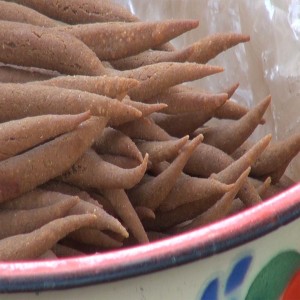
Friday Jul 30, 2021
Making groundnut oil and snacks (Summary)
Friday Jul 30, 2021
Friday Jul 30, 2021
Women in Benin tell us that there are three important things: select good groundnut varieties, follow good harvest and postharvest practices, and use good processing methods.
Download the full audio podcast in different languages at: www.accessagriculture.org
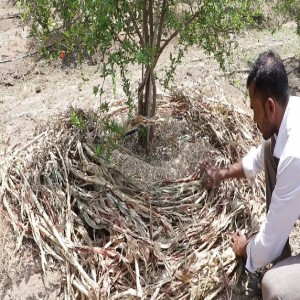
Thursday Jul 29, 2021
Mulch for a better soil and crop (Summary)
Thursday Jul 29, 2021
Thursday Jul 29, 2021
You can make mulch from any locally available, dry plant material such as grass, or straw. Mulching is easy. And above all, it helps to save you water, time and labour whilst at the same enriching your soil and giving you a better harvest.
Download the full audio podcast in different languages at: www.accessagriculture.org
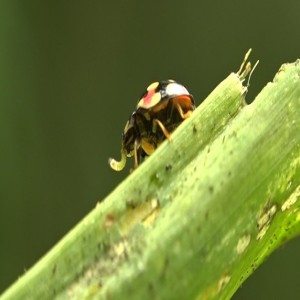
Wednesday Jul 28, 2021
Killing fall armyworms naturally (Summary)
Wednesday Jul 28, 2021
Wednesday Jul 28, 2021
By making best use of farmers’ friends and local plants on the farm, nature will help you control the fall armyworm and reward you with a good and healthy crop.
Download the full audio podcast in different languages at: www.accessagriculture.org
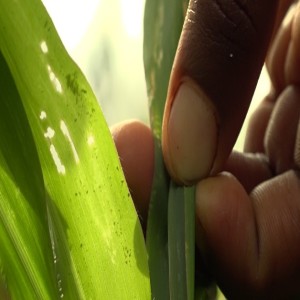
Tuesday Jul 27, 2021
Scouting for fall armyworms (Summary)
Tuesday Jul 27, 2021
Tuesday Jul 27, 2021
Spraying pesticides is expensive and usually cannot control this pest. Visit your field twice a week for the first 6 weeks and kill any egg masses and young armyworms by hand. It is important to do scouting because without it, you will not have a harvest at the end of the day.
Download the full audio podcast in different languages at: www.accessagriculture.org
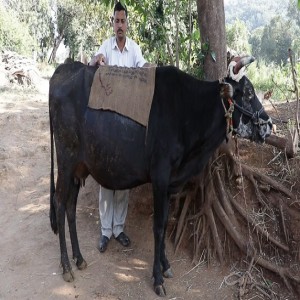
Monday Jul 26, 2021
Herbal medicine against fever in livestock (Summary)
Monday Jul 26, 2021
Monday Jul 26, 2021
In this audio podcast, we will learn what causes fever, how to recognise an animal with fever and how to handle a simple case of fever on your farm using a few simple tips.
Download the full audio podcast in different languages at: www.accessagriculture.org
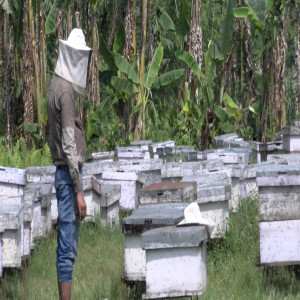
Friday Jul 16, 2021
Making a modern beehive (Summary)
Friday Jul 16, 2021
Friday Jul 16, 2021
In traditional hives, the bees make their own wax combs that are often attached to each other, so harvesting the honey is difficult. Honey can be extracted only two or three times a year from a traditional beehive. A modern beehive produces double to triple the volume of honey compared to a traditional hive.
Download the full audio podcast in different languages at: www.accessagriculture.org

Friday Jul 16, 2021
Managing black rot in cabbage (Summary)
Friday Jul 16, 2021
Friday Jul 16, 2021
Most farmers confuse black rot disease with downey mildew. Whereas mildew starts as purplish irregular spots on the leaves, black rot starts as small, yellow-brown, V-shaped areas at the leaf margins.
Download the full audio podcast in different languages at: www.accessagriculture.org
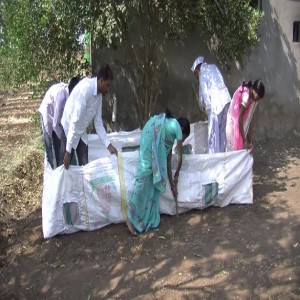
Monday Jun 21, 2021
Making a vermicompost bed (Summary)
Monday Jun 21, 2021
Monday Jun 21, 2021
With empty fertilizer bags you can sew a container. Place layers of decomposable material in the container and water it. Put the earthworms in after one week. Cover the top of the bed with gunny bags and water it regularly. Make sure the compost is shaded from direct sunlight.
Download the full audio podcast in different languages at: www.accessagriculture.org
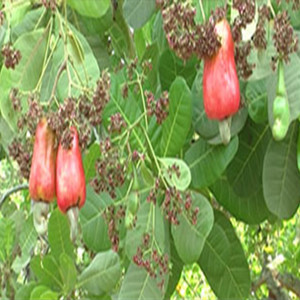
Monday Jun 21, 2021
Growing annual crops in cashew orchards (Summary)
Monday Jun 21, 2021
Monday Jun 21, 2021
Cashew trees are mainly grown for their nuts and apples. In a well maintained cashew orchards and associated with annual crops, the trees produce more and yield nuts of good quality.
Download the full audio podcast in different languages at: www.accessagriculture.org
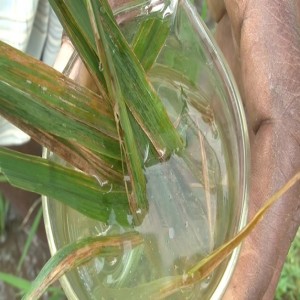
Monday Jun 21, 2021
Managing bacterial leaf blight in rice (Summary)
Monday Jun 21, 2021
Monday Jun 21, 2021
Farmers in India tell how the disease first appears in the leaf tip. Finally, the plant dries up. Non-chemical methods can be used to control this disease.
Download the full audio podcast in different languages at: www.accessagriculture.org
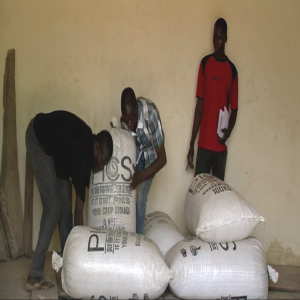
Friday Jun 18, 2021
Storing and managing maize in a warehouse (Summary)
Friday Jun 18, 2021
Friday Jun 18, 2021
Storing and managing stock in a warehouse involves three important steps. We should first prepare the warehouse, then store your products on pallets and third, follow and manage the stock in the warehouse.
Download the full audio podcast in different languages at: www.accessagriculture.org
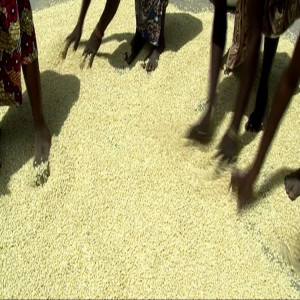
Friday Jun 18, 2021
Good shelling, sorting and drying of maize (Summary)
Friday Jun 18, 2021
Friday Jun 18, 2021
Pre-dry your maize before shelling it. Winnow the maize on a tarpaulin and sort it. Dry your maize under a hot sun on a tarpaulin, and turn it over regularly. Before storing the grain, measure the moisture level by checking the sound produced by the grain. Let the grain cool before storing
Download the full audio podcast in different languages at: www.accessagriculture.org
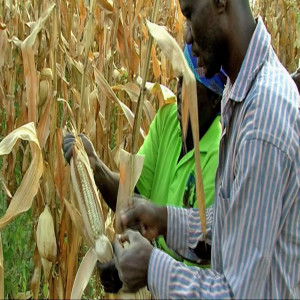
Friday Jun 18, 2021
Harvesting maize in a good way (Summary)
Friday Jun 18, 2021
Friday Jun 18, 2021
Your maize is mature when the leaves and the husks start to dry and turn yellow. Start harvesting improved varieties first and end with local varieties which are more resistant to pest attacks. Dehusk your maize in the field to avoid bringing pests to your home. Properly sort your maize in the field, burn the cobs that have been attacked and store the healthy ones.
Download the full audio podcast in different languages at: www.accessagriculture.org
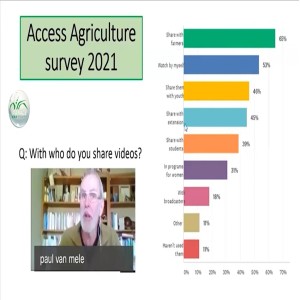
Friday Jun 04, 2021
Digital Extension Systems: Presentation by Dr Paul Van Mele
Friday Jun 04, 2021
Friday Jun 04, 2021
Dr Paul Van Mele, Access Agriculture Director for International Development, speaking on "Digital Extension Systems" at the MANAGE International Conference on “Agricultural Extension and Advisory Services: Innovations to Impact”, 25-27 February 2021. The National Institute of Agricultural Extension Management (MANAGE) is an autonomous organisation of the Ministry of Agriculture & Farmers’ Welfare, Government of India, Hyderabad, India.
Watch the presentation on EcoAgtube: https://tinyurl.com/PaulVanMele
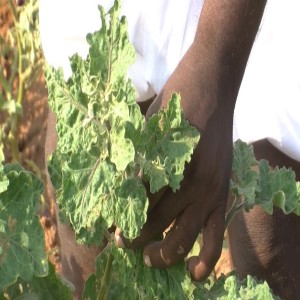
Friday May 14, 2021
Managing tomato leaf curl virus (Summary)
Friday May 14, 2021
Friday May 14, 2021
Tomato leaf curl cannot be cured by any product. The disease is spread by whiteflies. The best way to control the disease is through prevention. A net house can protect your nursery. A border of cereals around your vegetable field helps keep whiteflies out. Farmers in southern India tell us yellow sticky traps, natural pesticides and various other methods.
Download the full audio podcast in different languages at: www.accessagriculture.org
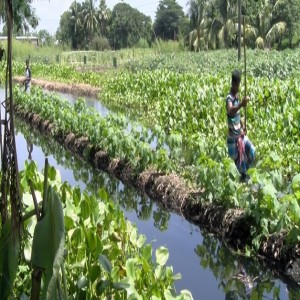
Friday May 14, 2021
Floating vegetable gardens (Summary)
Friday May 14, 2021
Friday May 14, 2021
As our land remains under water during the rainy season, our ancestors were already thinking of ways to produce crops in order to survive. They invented the floating garden by using crop residues. We do not need any chemical fertilizers or pesticides, because the floating bed is fertile by nature.
Download the full audio podcast in different languages at: www.accessagriculture.org
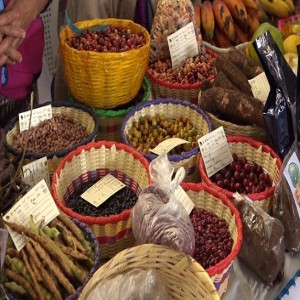
Friday May 14, 2021
Farmers' rights to seed: experiences from Guatemala (Summary)
Friday May 14, 2021
Friday May 14, 2021
We farmers, men and women, have the right to sell our seeds, and to conserve and exchange them. If they would forbid us from marketing or selling our potato seed, this would simply end our lives, because that is what we depend on.
Download the full audio podcast in different languages at: www.accessagriculture.org
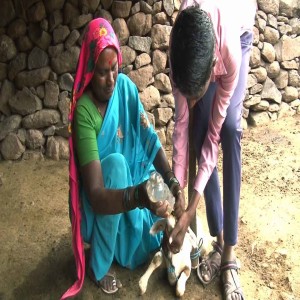
Thursday May 13, 2021
Herbal treatment for diarrhoea (Summary)
Thursday May 13, 2021
Thursday May 13, 2021
Keeping healthy livestock is a tough task because animals fall sick easily. Many people spend lots of money on medicine to treat their animals. In this audio podcast we will see how to prevent animals from getting diarrhoea and we will also learn how to treat sick animals with herbal medicine.
Download the full audio podcast in different languages at: www.accessagriculture.org
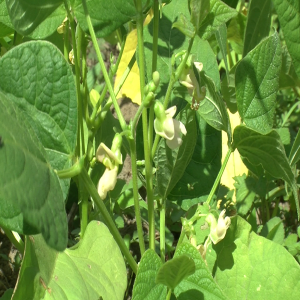
Thursday May 13, 2021
Conserving bean leaf vegetables (Summary)
Thursday May 13, 2021
Thursday May 13, 2021
Bean leaves are rich in proteins and vitamins. To have them available during the dry season, you can dry and store them.
Download the full audio podcast in different languages at: www.accessagriculture.org
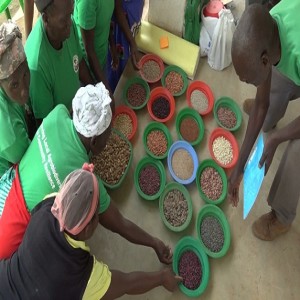
Thursday May 13, 2021
Farmers' rights to seed - Malawi (Summary)
Thursday May 13, 2021
Thursday May 13, 2021
For centuries farmers all over the world have been the guardians of crop seed and the breeders of new varieties. Policy-makers often find it challenging to recognize farmer’s ancient rights to keep and grow their own seed in the face of commercial varieties. But farmers are increasingly aware of their rights and the importance of their own varieties.
Download the full audio podcast in different languages at: www.accessagriculture.org
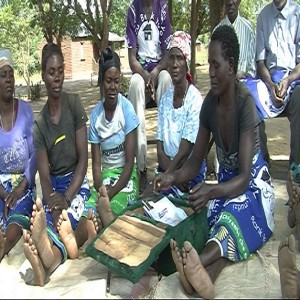
Wednesday May 12, 2021
Village savings and loan associations (Summary)
Wednesday May 12, 2021
Wednesday May 12, 2021
From the moment a member has saved a certain amount, he or she can start borrowing money to run any kind of business. By saving money together as a group, we can help small businesses to flourish and help each other out in the village.
Download the full audio podcast in different languages at: www.accessagriculture.org
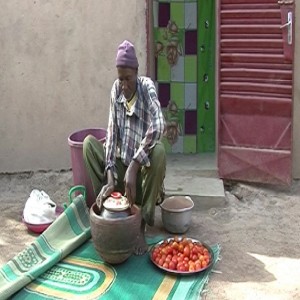
Wednesday May 12, 2021
Storing fresh and dried tomatoes (Summary)
Wednesday May 12, 2021
Wednesday May 12, 2021
You can store fresh tomatoes in a local fridge for a few weeks. A local fridge consists of two earthen pots, placed one inside the other and separated with sand. In addition to storing fresh tomatoes, they can also be dried and used any time. Dried tomatoes can be stored for a year.
Download the full audio podcast in different languages at: www.accessagriculture.org
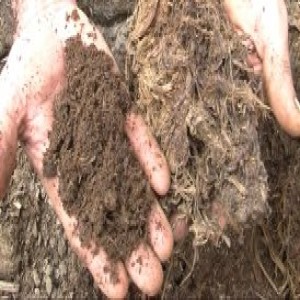
Wednesday May 12, 2021
Compost from rice straw (Summary)
Wednesday May 12, 2021
Wednesday May 12, 2021
Small scale farmers can struggle to keep their soil healthy, and often resort to buying fertilisers to improve their yield, but with a bit of extra work to make compost, yield can be increased naturally and the soil improved year by year. To turn your rice straw into compost, requires a series of steps that control and accelerate the decomposition by microorganisms. With the right conditions, your compost will be ready in 4 months.
Download the full audio podcast in different languages at: www.accessagriculture.org
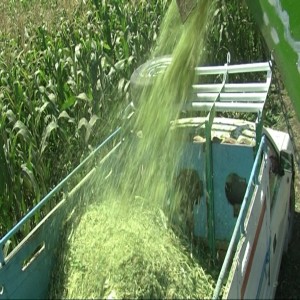
Tuesday May 11, 2021
Silage from maize (Summary)
Tuesday May 11, 2021
Tuesday May 11, 2021
Without any air, finely chopped green maize ferments without rotting. This is because micro-organisms digest the sugars in the fodder and produce lactic acid, which acts as a natural preservative. The key to making silage is to create the right conditions for a good fermentation.
Download the full audio podcast in different languages at: www.accessagriculture.org
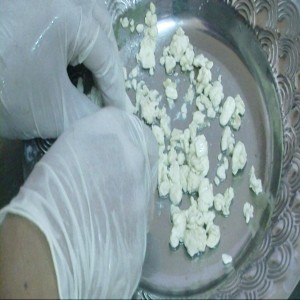
Tuesday May 11, 2021
Making rennet (Summary)
Tuesday May 11, 2021
Tuesday May 11, 2021
The key ingredient to making cheese is rennet. This triggers the fats in the milk to bind together as curds, and the rest of the liquid runs off as whey. Whilst you can buy ready-made commercial rennet in liquid or powder form, in Egypt, rural women prefer to use natural rennet from the curds found in a calf’s stomach.
Download the full audio podcast in different languages at: www.accessagriculture.org
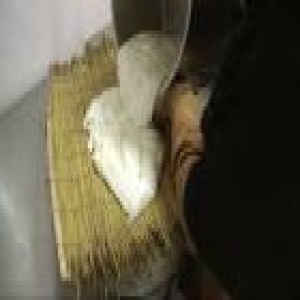
Tuesday May 11, 2021
Making fresh cheese (Summary)
Tuesday May 11, 2021
Tuesday May 11, 2021
A soft fresh cheese can be made and ready for consumption in less than 1 hour and, and is easily made with some basic kitchen equipment, as we will learn from rural women from the village of Sakkara in Egypt.
Download the full audio podcast in different languages at: www.accessagriculture.org
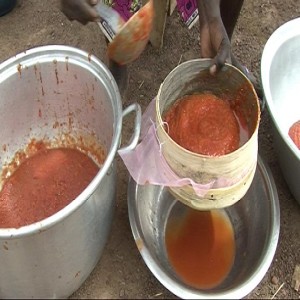
Friday Apr 09, 2021
Tomato concentrate and juice (Summary)
Friday Apr 09, 2021
Friday Apr 09, 2021
During the lean season, tomatoes become very scarce and consumers buy canned tomatoes at high prices or no longer eat tomatoes. But by processing tomatoes into concentrate, you can use it for one year. And tomato juice can be used for 2 to 3 weeks.
Download the full audio podcast in different languages at: www.accessagriculture.org
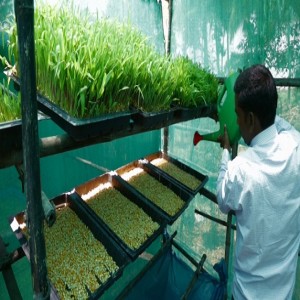
Friday Apr 09, 2021
Hydroponic fodder (Summary)
Friday Apr 09, 2021
Friday Apr 09, 2021
Saving water, minimum land use, less labour, faster growth, giving a high yield of highly nourishing fodder that will improve your livestock. These are the key benefits in hydroponic fodder production.
Download the full audio podcast in different languages at: www.accessagriculture.org
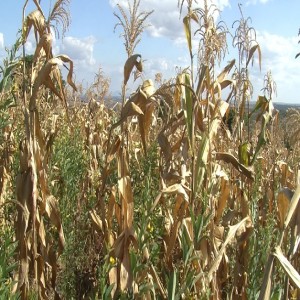
Thursday Mar 25, 2021
Intercropping maize with pigeon peas (Summary)
Thursday Mar 25, 2021
Thursday Mar 25, 2021
Legumes like pigeon peas take nitrogen from the air and deposit it into the soil. When pigeon peas are intercropped the root nodules release valuable nitrogen to the other crop.
Any roots, leaves or stems of the pigeon pea plant that stay in the field also help to improve the soil.
Download the full audio podcast in different languages at: www.accessagriculture.org
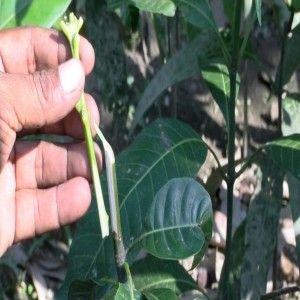
Thursday Mar 25, 2021
Grafting mango seedlings (Summary)
Thursday Mar 25, 2021
Thursday Mar 25, 2021
With grafting, a young shoot from a preferred mango variety is attached to a seedling. The seedling will develop the root and base of the tree. This is called the rootstock. The young shoot that is grafted onto the rootstock is called the scion. This will develop into the canopy.
Download the full audio podcast in different languages at: www.accessagriculture.org
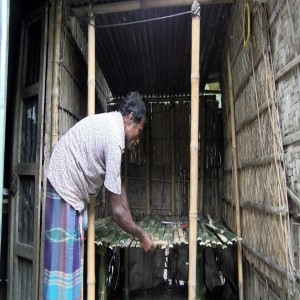
Wednesday Mar 24, 2021
Making a raised platform for sheep and goats (Summary)
Wednesday Mar 24, 2021
Wednesday Mar 24, 2021
In traditional sheds, sheep and goats are often kept on the ground. The animals are in direct contact with their urine and droppings. Because of poor hygiene many animals get sick. You can easily make a raised platform inside your existing shed to solve these problems.
Download the full audio podcast in different languages at: www.accessagriculture.org
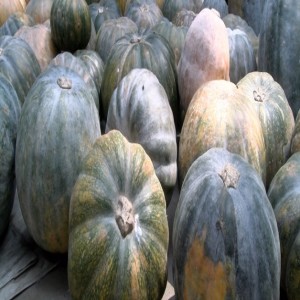
Wednesday Mar 24, 2021
Sorting and storing pumpkins (Summary)
Wednesday Mar 24, 2021
Wednesday Mar 24, 2021
Farmers selling pumpkins right after harvest get a low price because there are so many.
They can sell them at a better price during the off-season by storing them.
Download the full audio podcast in different languages at: www.accessagriculture.org
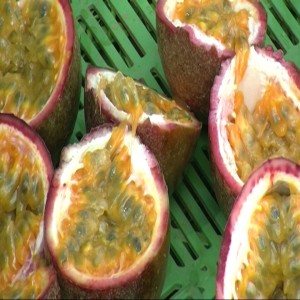
Wednesday Mar 24, 2021
Making a condiment from soya beans (Summary)
Wednesday Mar 24, 2021
Wednesday Mar 24, 2021
All across the world, people add condiments to their cooking to make it taste better. In West Africa, many sauces are prepared using a condiment made with seeds from the Néré tree, also known as the African locust bean. In Mali, this condiment is called soumbala. Due to excessive tree cutting in the Sahel region, soumbala has become a scarce and expensive product. Although stock cubes are often used, some women in Mali have developed a good alternative by making soumbala from soya beans.
Download the full audio podcast in different languages at: www.accessagriculture.org
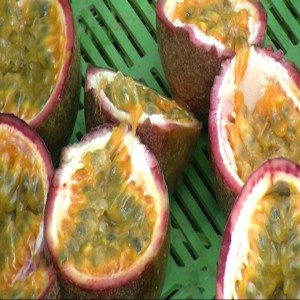
Thursday Mar 11, 2021
Staking and pruning passion fruit (Summary)
Thursday Mar 11, 2021
Thursday Mar 11, 2021
A well-managed passion fruit orchard can provide farmers with some good money throughout the year. In this audio podcast, we will learn how to stake passion fruit plants and prune the vines systematically so as to get good yields.
Download the full audio podcast in different languages at: www.accessagriculture.org
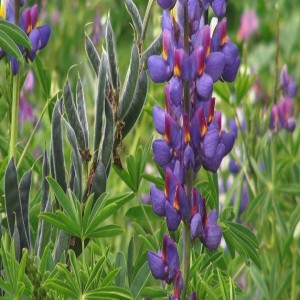
Wednesday Mar 10, 2021
Growing lupin without disease (Summary)
Wednesday Mar 10, 2021
Wednesday Mar 10, 2021
Lupin can be grown in high or cold areas. Lupin is healthy food, rich in proteins, and good for the soil. In this audio podcast, farmers in Bolivia tell how to keep your field free from anthracnose disease.
Download the full audio podcast in different languages at: www.accessagriculture.org
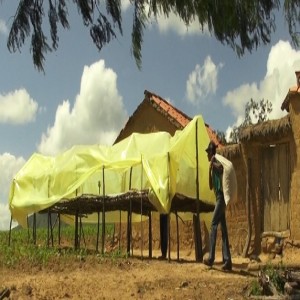
Tuesday Feb 09, 2021
Managing aflatoxins in groundnuts during drying and storage (Summary)
Tuesday Feb 09, 2021
Tuesday Feb 09, 2021
Certain moulds grow on groundnut, maize and other foods. These moulds produce a poison called aflatoxin. To have healthy groundnuts it is important to care for the groundnut during its whole growth, but especially during drying and storage.
Download the full audio podcast in different languages at: www.accessagriculture.org
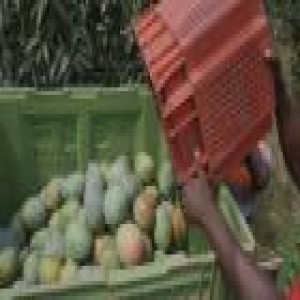
Tuesday Feb 09, 2021
Selective harvest of mangoes (Summary)
Tuesday Feb 09, 2021
Tuesday Feb 09, 2021
Harvest is a very crucial part of your work as a farmer. If you get it right you will be rewarded with higher yields and better fruit quality – which translates to more income. In this audio podcast, we will explain to you what you need to do to improve your harvesting practice.
Download the full audio podcast in different languages at: www.accessagriculture.org
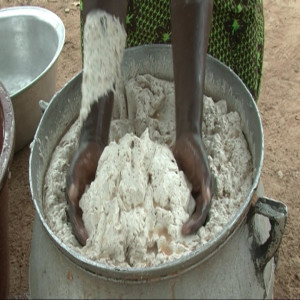
Friday Jan 22, 2021
Making better shea butter (Summary)
Friday Jan 22, 2021
Friday Jan 22, 2021
Shea butter is used a lot in cooking, traditional medicine and cosmetic products. However traditional extraction of shea butter doesn’t follow required hygiene rules, this results in unsafe butter that can cause illness in consumers. In this audio podcast, we will learn how women in the South of Mali have improved the production of shea butter.
Download the full audio podcast in different languages at: www.accessagriculture.org
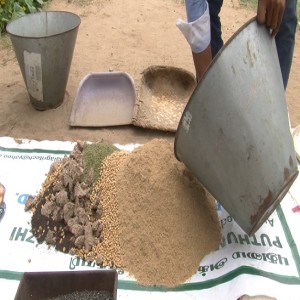
Friday Jan 22, 2021
Preparing low-cost concentrate feed (Summary)
Friday Jan 22, 2021
Friday Jan 22, 2021
By making a base mix that can be fed to all animals, you save time and money. Two thirds of the mix is made from grains, like paddy, maize, sorghum and millet. One third of the mix should be rich in protein and fat. Mill the base mix into a coarse flour. Depending on the type of animal, you then need to add a few other ingredients.
Download the full audio podcast in different languages at: www.accessagriculture.org
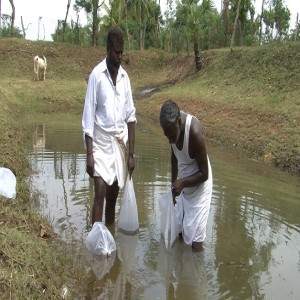
Monday Jan 18, 2021
Stocking fingerlings in a nursery pond (Summary)
Monday Jan 18, 2021
Monday Jan 18, 2021
Fingerlings are extremely delicate. They must be transported, kept and fed well if you want a good harvest. If not, you may lose all the money you invested. Using a nursery pond you can easily grow quality fingerlings to make more profit.
Download the full audio podcast in different languages at: www.accessagriculture.org
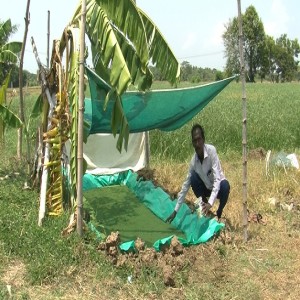
Monday Jan 18, 2021
Growing azolla for feed (Summary)
Monday Jan 18, 2021
Monday Jan 18, 2021
Azolla fixes nitrogen from the air and stores this in its leaves. Azolla is richer in protein, vitamins and minerals than grains and most green fodder. Because of this and because azolla grows fast and easily in a small area, it makes an ideal addition to feed.
Download the full audio podcast in different languages at: www.accessagriculture.org
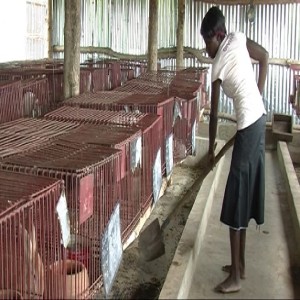
Thursday Jan 14, 2021
Preventing diseases in rabbits (Summary)
Thursday Jan 14, 2021
Thursday Jan 14, 2021
Coccidiosis and colibacillosis are the most dangerous diseases in rabbits because they are highly contagious. Veterinary products cannot cure rabbits that have been infected with these disease. Luckily, they can be prevented, as we will listen in this audio podcast.
Download the full audio podcast in different languages at: www.accessagriculture.org
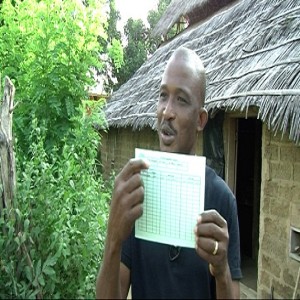
Thursday Jan 14, 2021
Monitoring to make rabbit breeding profitable (Summary)
Thursday Jan 14, 2021
Thursday Jan 14, 2021
In this audio podcast, we will learn how to monitor the performance of a rabbit farm. By filling out monitoring sheets with accurate information and by keeping a notebook to systematically record all expenditures. This will enable better management of the farm and ensuring its profitability.
Download the full audio podcast in different languages at: www.accessagriculture.org
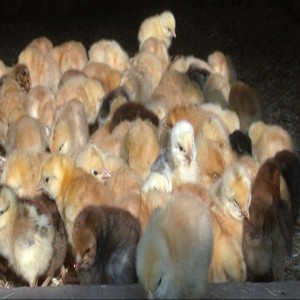
Wednesday Jan 13, 2021
Working together for healthy chicks (Summary)
Wednesday Jan 13, 2021
Wednesday Jan 13, 2021
In this audio podcast, we will visit the city of Fayoum where a group of women are collaborating in raising chicks by paying close attention to the chicks’ housing, feed and vaccination programs.
Download the full audio podcast in different languages at: www.accessagriculture.org
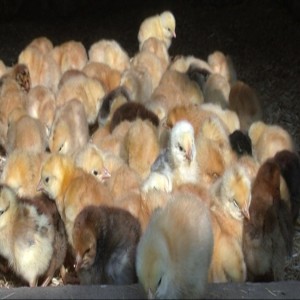
Wednesday Jan 13, 2021
Making a business from home raised chicks (Summary)
Wednesday Jan 13, 2021
Wednesday Jan 13, 2021
In this audio podcast, we will visit the rooftop brooders of the women in Fayoum – and we will learn from them the key steps for a successful household chick raising business.
Download the full audio podcast in different languages at: www.accessagriculture.org
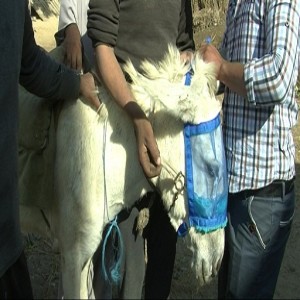
Tuesday Jan 12, 2021
Preventing fly-borne illness in donkeys and horses (Summary)
Tuesday Jan 12, 2021
Tuesday Jan 12, 2021
Donkeys, mules and horses are important working animals, many diseases are transmitted by insects such as flies. Flies can transmit a parasitic worm called Habronema that causes several problems in horses and donkeys. There are many precautions which you can take to ensure that your donkeys and horses stay free from this worm and strong enough to carry out all their important work.
Download the full audio podcast in different languages at: www.accessagriculture.org
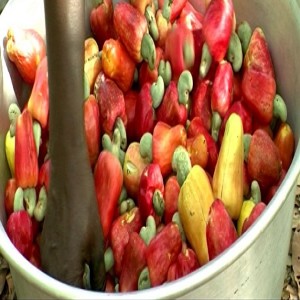
Tuesday Jan 12, 2021
Preparing cashew apple juice (Summary)
Tuesday Jan 12, 2021
Tuesday Jan 12, 2021
People enjoy cashew nuts, whereas cashew apples are less valued. Leaving cashew apples on the land is an enormous loss of money. However, cashew apples can be processed into a nutritious juice which can be consumed throughout the year.
Download the full audio podcast in different languages at: www.accessagriculture.org
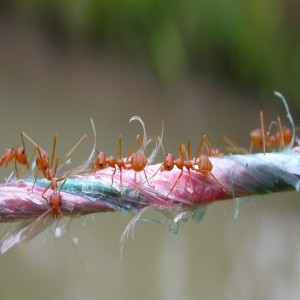
Monday Jan 11, 2021
Promoting weaver ants in your orchard (Summary)
Monday Jan 11, 2021
Monday Jan 11, 2021
Weaver ants help to protect your fruit and nuts from fruit flies and many other pests. If you don’t have weaver ants in your orchard yet, collect all the nests from an ant colony and transfer them to one of your fruit trees. Help the ants to spread to more trees by connecting neighbouring trees with a string or stick. If ants from neighbouring trees fight, they are from different colonies and should be separated. Cut any branches that connect both trees. Apply ash to your arms and feet, or to the branch on which you will stand, to pick the fruit.
Download the full audio podcast in different languages at: www.accessagriculture.org
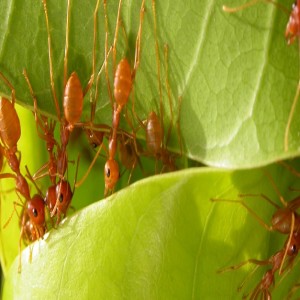
Monday Jan 11, 2021
Weaver ants against fruit flies (Summary)
Monday Jan 11, 2021
Monday Jan 11, 2021
It takes a few minutes for a fruit fly to find a suitable spot on the mango and inject her eggs under the skin of the fruit. But even in that short time, the weaver ants will have either chased her away or have captured her. Their scent also helps. When other insects detect the scent of weaver ants, they prefer to stay away.
Download the full audio podcast in different languages at: www.accessagriculture.org
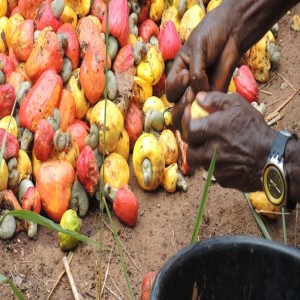
Wednesday Jan 06, 2021
Collecting fallen fruit against fruit flies (Summary)
Wednesday Jan 06, 2021
Wednesday Jan 06, 2021
One fruit fly can lay a few hundred eggs during her life. Fruit flies puncture the skin of fruit to lay their eggs, which cause the fruit to drop prematurely and rot. The worms that hatch from these eggs leave the spoilt fruit after one week and crawl into the soil where they develop into fruit flies. From one infested fruit many fruit flies can develop, so never leave any fruit on the ground in the open air.
Download the full audio podcast in different languages at: www.accessagriculture.org
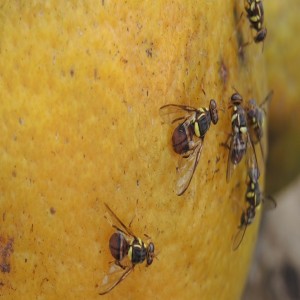
Wednesday Dec 23, 2020
Integrated approach against fruit flies (Summary)
Wednesday Dec 23, 2020
Wednesday Dec 23, 2020
Fruit flies inject their eggs in fruit. A single fruit fly can lay hundreds of eggs, which turn into white worms that eat the inside of fruit. If no action is taken, fruit flies quickly increase in numbers and can destroy your entire crop. Always combine different methods: • Place traps; • Use food baits; • Encourage weaver ants; and • Collect and destroy any fallen fruit.
Download the full audio podcast in different languages at: www.accessagriculture.org
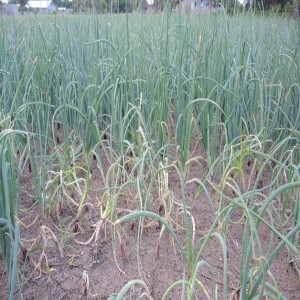
Monday Dec 21, 2020
Managing onion diseases (Summary)
Monday Dec 21, 2020
Monday Dec 21, 2020
Onions grow well under many different conditions, but when grown in the rainy season onions have a greater chance of getting sick. Onion diseases can make the leaves fold and reduce your yield. Diseases can spread with soil, seed or infested crop residues.
Download the full audio podcast in different languages at: www.accessagriculture.org
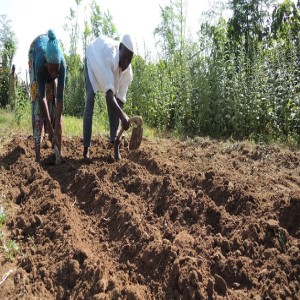
Friday Dec 18, 2020
How to make a fertile soil for onions (Summary)
Friday Dec 18, 2020
Friday Dec 18, 2020
Onions have few roots and shallow roots and therefore can take up nutrients from the top soil only. This explains why it is crucial to pay particular attention to making your soil fertile when you want to grow onions.
Download the full audio podcast in different languages at: www.accessagriculture.org
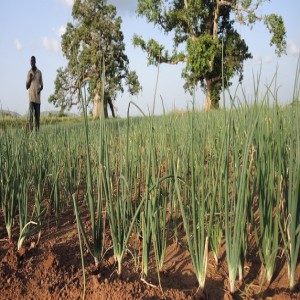
Friday Dec 18, 2020
Installing an onion field (Summary)
Friday Dec 18, 2020
Friday Dec 18, 2020
Onions need rich, fertile soil. Only grow onions once in 3 years in the same field. Plant the onions on raised beds, especially in the rainy season. Transplant when the onions are about 6 weeks old. Plant the onions 10 centimetres apart. By taking good care of your onions, the onions will take good care of you.
Download the full audio podcast in different languages at: www.accessagriculture.org
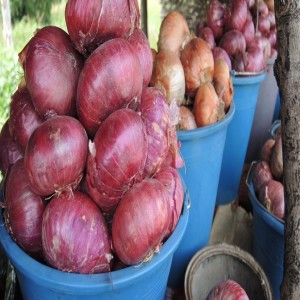
Monday Dec 14, 2020
The onion nursery (Summary)
Monday Dec 14, 2020
Monday Dec 14, 2020
Onion seedlings need a healthy, loose soil. Add well-aged manure or compost. In the rainy season you need to raise the seedbed so the onion roots will not rot. If you use quality seed, most of the seed will germinate and you need much less of it. Onion seedlings need room to grow, so do not plant them too close together. Put the seed in lines, 5 to 10 centimetres apart and 1 centimetre deep. Cover the seeds lightly with fine soil.
Download the full audio podcast in different languages at: www.accessagriculture.org
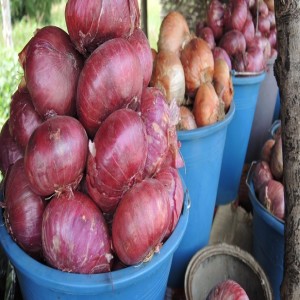
Monday Dec 14, 2020
Making more money from onions (Summary)
Monday Dec 14, 2020
Monday Dec 14, 2020
Let us learn from the experiences of some innovative farmers in Ghana who make more money: by producing onions when there are few of them on the market; by storing them until the price comes up again; and by selling directly to clients in urban markets.
Download the full audio podcast in different languages at: www.accessagriculture.org
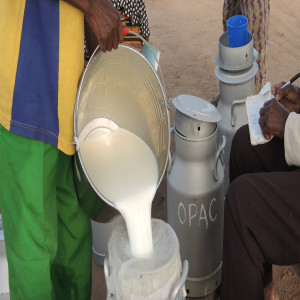
Friday Dec 11, 2020
Pure milk is good milk (Summary)
Friday Dec 11, 2020
Friday Dec 11, 2020
Modern dairy plants use pure, fresh milk to make milk powder, cheese, yoghurt and other products. The processing plant can only make its products from pure milk. When water is added, the milk is diluted, or weakened, and it is not good for processing into dairy products.
Download the full audio podcast in different languages at: www.accessagriculture.org
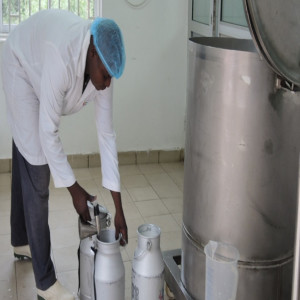
Friday Dec 11, 2020
Keeping milk free from antibiotics (Summary)
Friday Dec 11, 2020
Friday Dec 11, 2020
Antibiotics are drugs used for killing germs. The drugs can be given by mouth or injected into the animal’s muscle or vein. These drugs go directly into the bloodstream. The blood carries the drug to the udder where it will get into the milk.
Download the full audio podcast in different languages at: www.accessagriculture.org

Thursday Dec 10, 2020
Managing cattle ticks (Summary)
Thursday Dec 10, 2020
Thursday Dec 10, 2020
Ticks are small creatures like insects that attach to the body of animals to suck their blood. Ticks cause diseases like skin lesions. The animals will become skinny and no longer produce milk.
Download the full audio podcast in different languages at: www.accessagriculture.org
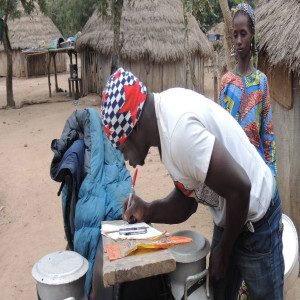
Thursday Dec 10, 2020
Taking milk to the collection centre (Summary)
Thursday Dec 10, 2020
Thursday Dec 10, 2020
Milk spoils because of germs that are too small to see. The germs grow in the milk and spoil it. Germs multiply faster in warm milk than in cold milk. So move the milk to the collection centre within 30 minutes of milking, or the milk will start to spoil.
Download the full audio podcast in different languages at: www.accessagriculture.org
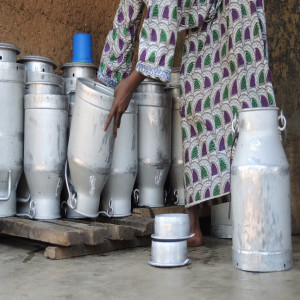
Wednesday Dec 09, 2020
Keeping milk clean and fresh (Summary)
Wednesday Dec 09, 2020
Wednesday Dec 09, 2020
Modern dairy plants buy fresh milk from local farmers and herders to make into many different products. The company pays a fair price, but requires strict hygiene: they only buy milk that is clean and fresh.
Download the full audio podcast in different languages at: www.accessagriculture.org
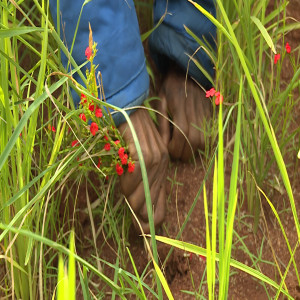
Wednesday Dec 09, 2020
Striga management in rice (Summary)
Wednesday Dec 09, 2020
Wednesday Dec 09, 2020
Farmers in Madagascar show how following four key principles can give you a good rice harvest despite the presence of striga.
Download the full audio podcast in different languages at: www.accessagriculture.org
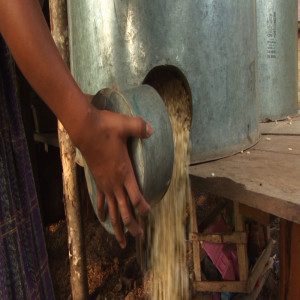
Friday Dec 04, 2020
Let's store our maize well (Summary)
Friday Dec 04, 2020
Friday Dec 04, 2020
Maize grains have to be very dry and clean before you store them. The grains will stay free of pests and diseases for a long time in a metal granary, if you store them correctly.
Download the full audio podcast in different languages at: www.accessagriculture.org
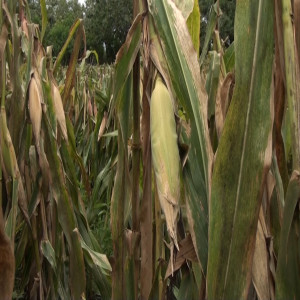
Thursday Dec 03, 2020
Bending over the maize (Summary)
Thursday Dec 03, 2020
Thursday Dec 03, 2020
A traditional Central American practice is to bend over the maize stalk to help dry the maize and to protect it from disease and pest damage. If you do this at just the right time, you will harvest more. Maize grains keep growing until a black spot appears at the base of the grain. At that time, the plant has lost all of its green color, this is when you bend the maize stalk, to allow the grains to keep drying.
Download the full audio podcast in different languages at: www.accessagriculture.org
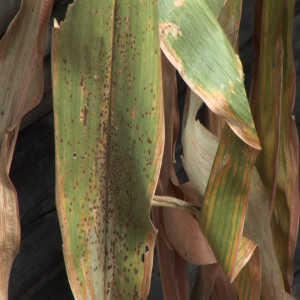
Wednesday Nov 18, 2020
Controlling maize tar spot (Summary)
Wednesday Nov 18, 2020
Wednesday Nov 18, 2020
Maize tar spot is a serious pest of maize. To help prevent it, it is important to burn the crop residues from the previous year, or plant your maize in land that did not have maize the year before. Some maize varieties are resistant to this disease.
Download the full audio podcast in different languages at: www.accessagriculture.org
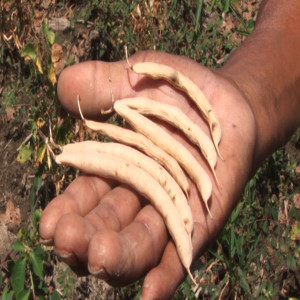
Monday Nov 16, 2020
Beans for the lowlands (Summary)
Monday Nov 16, 2020
Monday Nov 16, 2020
Farmers in Guatemala explain how to grow beans in hot, lowland areas by first selecting a bean variety that is adapted to the heat. They plant the beans in the winter, and sometimes have to provide irrigation. The beans can be planted alone or between the rows of maize.
Download the full audio podcast in different languages at: www.accessagriculture.org
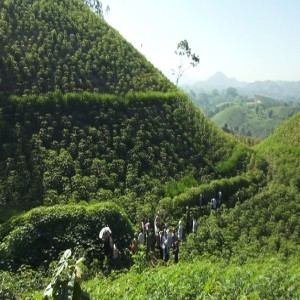
Monday Nov 02, 2020
Grass strips against soil erosion (Summary)
Monday Nov 02, 2020
Monday Nov 02, 2020
Contour hedgerows slow the speed of water coming down the slope and allow the water to infiltrate. They also allow the washed away soil and nutrients to settle out above the hedgerows. You can plant many different grasses, depending on what you need and what is locally available.
Download the full audio podcast in different languages at: www.accessagriculture.org
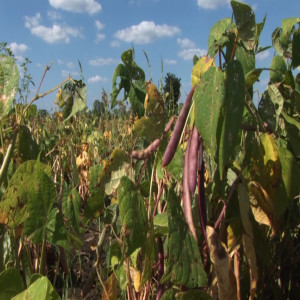
Wednesday Oct 28, 2020
Beans as a relay crop (Summary)
Wednesday Oct 28, 2020
Wednesday Oct 28, 2020
Relay cropping beans between rows of maize helps to fertilize the maize, they can be planted before the maize is harvested. Plant them two to a hill and 25 centimetres apart. After you harvest the beans you can store them in a metal granary.
Download the full audio podcast in different languages at: www.accessagriculture.org
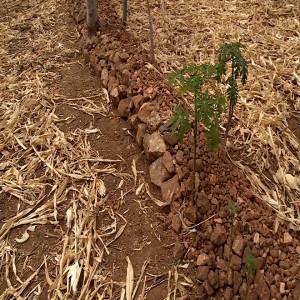
Thursday Oct 22, 2020
Stone lines (Summary)
Thursday Oct 22, 2020
Thursday Oct 22, 2020
Stone lines induce a natural process of terracing as they trap sediments. They are also built to rehabilitate eroded lands. Farmers in Kenya show how they construct stone lines.
Download the full audio podcast in different languages at: www.accessagriculture.org
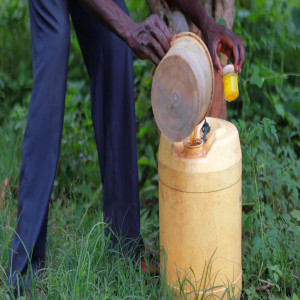
Wednesday Oct 21, 2020
Human urine as fertilizer (Summary)
Wednesday Oct 21, 2020
Wednesday Oct 21, 2020
Land in Tororo district in Uganda has been intensively used and the soil fertility is low and declining. This audio podcast features a possible solution - using urine as a fertiliser.
Download the full audio podcast in different languages at: www.accessagriculture.org
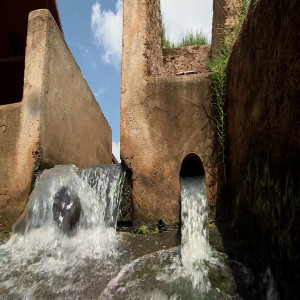
Tuesday Oct 20, 2020
Water users associations (Summary)
Tuesday Oct 20, 2020
Tuesday Oct 20, 2020
In Kenya, WRUAs first began forming in the 1990’s. They are established by communities along rivers and guarantee the participation of their members in all management decisions taken on the use of the river water.
Download the full audio podcast in different languages at: www.accessagriculture.org
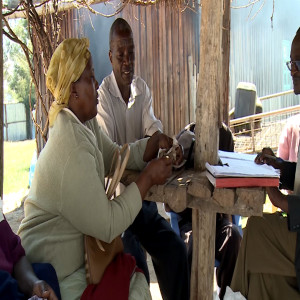
Monday Oct 19, 2020
Self help group (Summary)
Monday Oct 19, 2020
Monday Oct 19, 2020
As individual farmers lack resources to invest in, or learn about, Conservation Agriculture. This audio podcast features a group in Kenya that has come together to share knowledge and equipment and to assist each other.
Download the full audio podcast in different languages at: www.accessagriculture.org
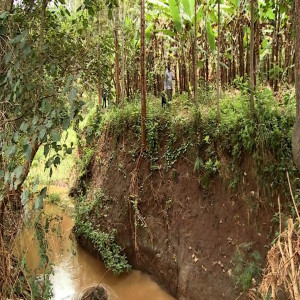
Thursday Oct 15, 2020
Riparian zone protection (Summary)
Thursday Oct 15, 2020
Thursday Oct 15, 2020
In Kenya, small-scale farmers stabilise river banks and reduce rainwater runoff from nearby plots by planting trees and grasses.
Download the full audio podcast in different languages at: www.accessagriculture.org
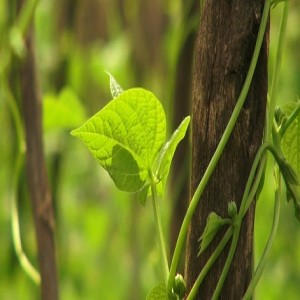
Friday Oct 09, 2020
Staking climbing beans (Summary)
Friday Oct 09, 2020
Friday Oct 09, 2020
Wooden stakes are the strongest support for climbing beans and can be used for many seasons, but wood is in high demand for construction and fuel wood. Farmers in southwest Uganda tell us different ways of staking beans, with or without wood.
Download the full audio podcast in different languages at: www.accessagriculture.org
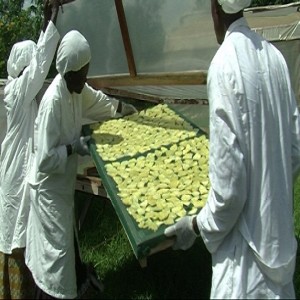
Thursday Oct 08, 2020
Solar drying pineapples (Summary)
Thursday Oct 08, 2020
Thursday Oct 08, 2020
Many pineapples are wasted, because they cannot be kept fresh for more than a week. By drying pineapples farmers can reduce waste and earn more money throughout the year.
Download the full audio podcast in different languages at: www.accessagriculture.org
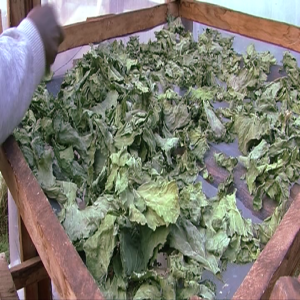
Wednesday Oct 07, 2020
Solar drying of kale leaves (Summary)
Wednesday Oct 07, 2020
Wednesday Oct 07, 2020
Farmers and vegetable sellers find it hard to sell leafy vegetables even a day after harvest because the leaves spoil quickly, but solar drying allows farmers to reduce losses and sell leafy vegetables out of the main harvest season.
Download the full audio podcast in different languages at: www.accessagriculture.org
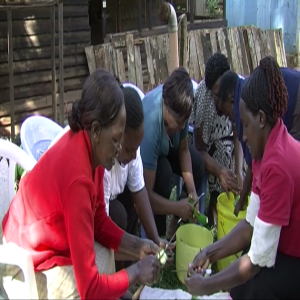
Tuesday Oct 06, 2020
Making banana flour (Summary)
Tuesday Oct 06, 2020
Tuesday Oct 06, 2020
Across the world, people eat bananas and plantains. While some prepare banana as part of their main meal, many just eat it as a fruit. Once harvested, bananas don’t keep long and are easily damaged during handling and storage. But it is possible to turn your bananas or plantains into another nutritional product, namely flour.
Download the full audio podcast in different languages at: www.accessagriculture.org
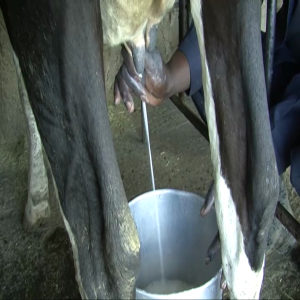
Thursday Oct 01, 2020
Hand milking of dairy cows (Summary)
Thursday Oct 01, 2020
Thursday Oct 01, 2020
Dairy farming is a source of food and income for many households, but to make money, it is important to produce good milk and lots of it. However, milk can easily be spoilt or dirtied and then buyers will refuse it. This audio podcast features how good hygiene and proper hand milking will help you get good returns for your milk.
Download the full audio podcast in different languages at: www.accessagriculture.org
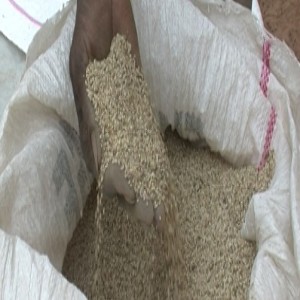
Wednesday Sep 30, 2020
Maintaining varietal purity of sesame (Summary)
Wednesday Sep 30, 2020
Wednesday Sep 30, 2020
The industry requires sesame seeds that are all of the same colour, size, and oil and starch contents. For this, you need varietal purity, meaning that all of the sesame has to be of the same variety. Mixed sesame seeds are difficult to sell and buyers pay less for them.
Download the full audio podcast in different languages at: www.accessagriculture.org
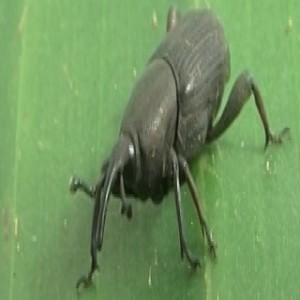
Tuesday Sep 29, 2020
Controlling banana weevils (Summary)
Tuesday Sep 29, 2020
Tuesday Sep 29, 2020
Learn how to spot banana weevils, how to keep them out of new banana fields and how to trap them.
Download the full audio podcast in different languages at: www.accessagriculture.org
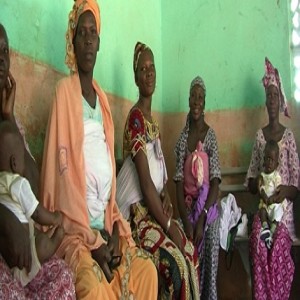
Monday Sep 28, 2020
Helping women recover after childbirth (Summary)
Monday Sep 28, 2020
Monday Sep 28, 2020
In this audio podcast, we will learn how to help the new mother: to recover from the loss of blood; clean the womb and reduce pains; feel good about herself; and get back her appetite and energy. A healthy mother can feed her baby well with breast milk, which helps keep the baby in good health.
Download the full audio podcast in different languages at: www.accessagriculture.org
